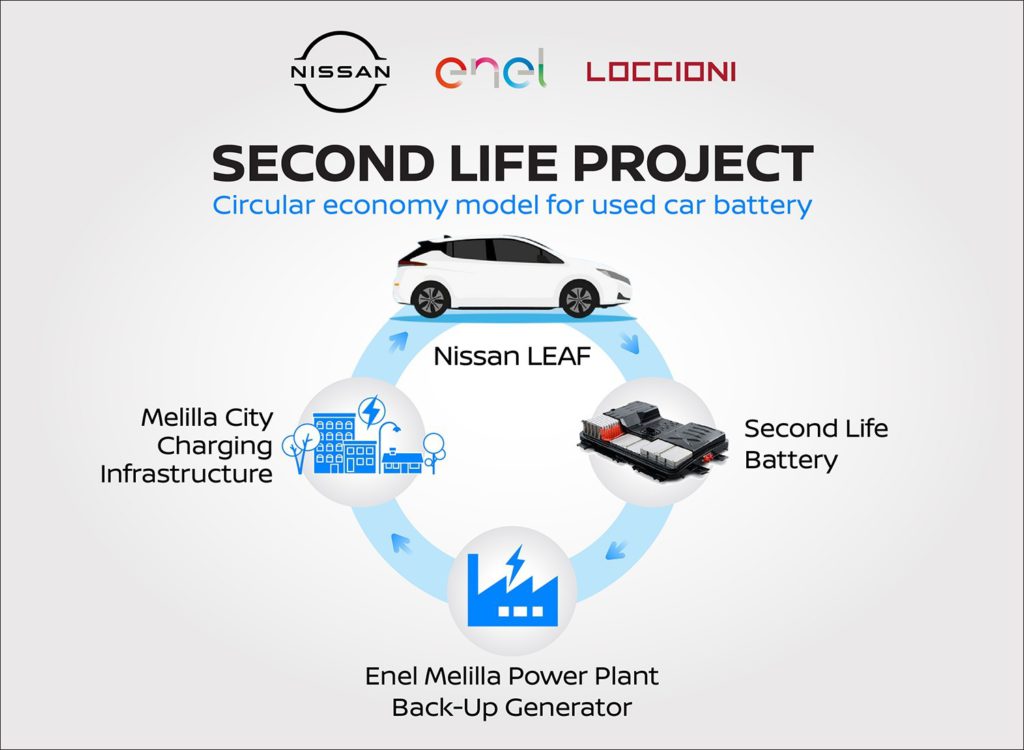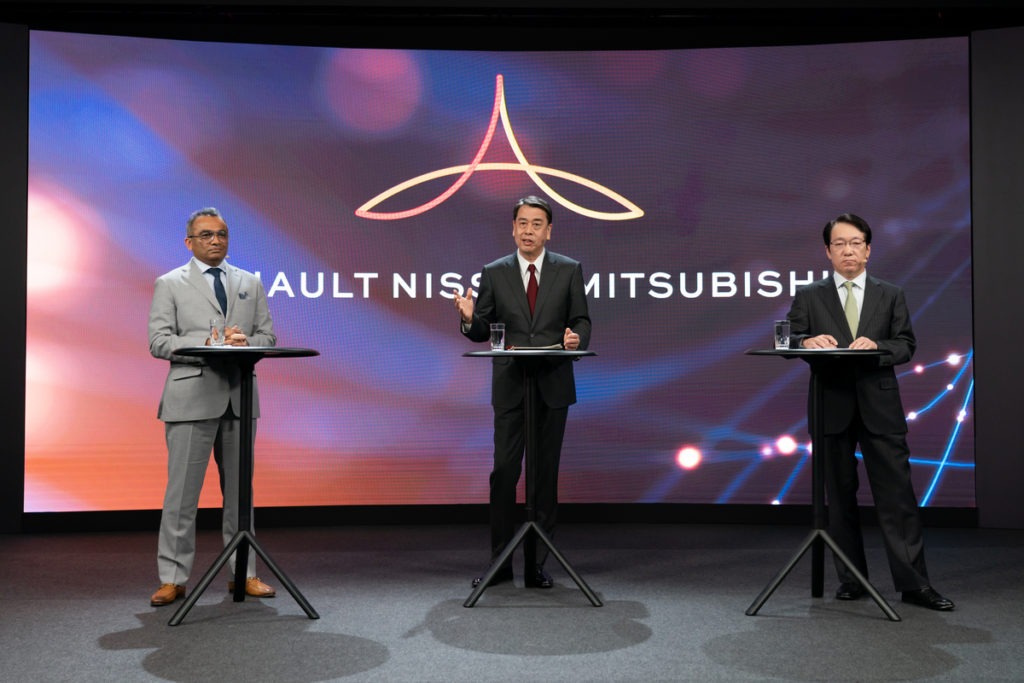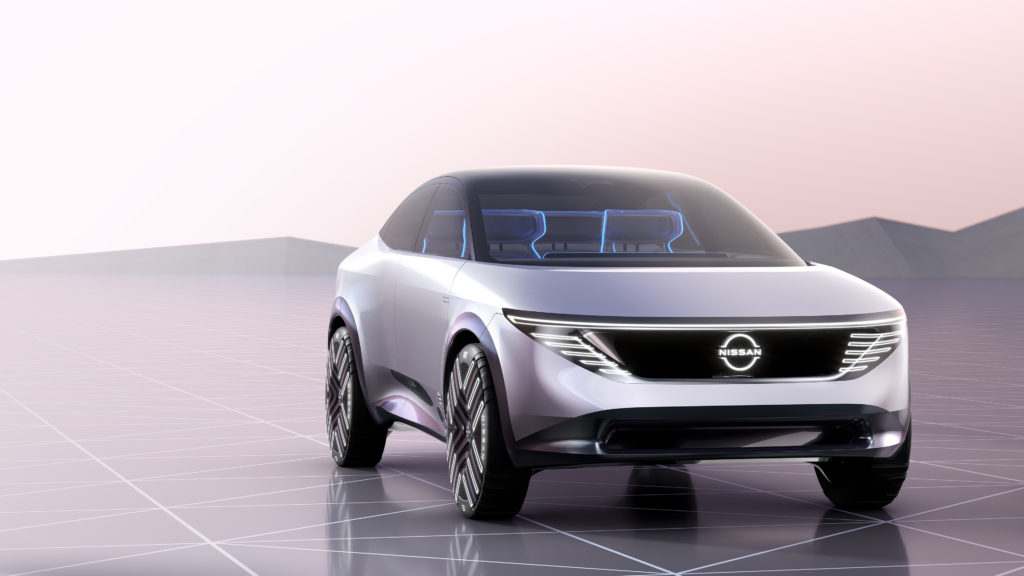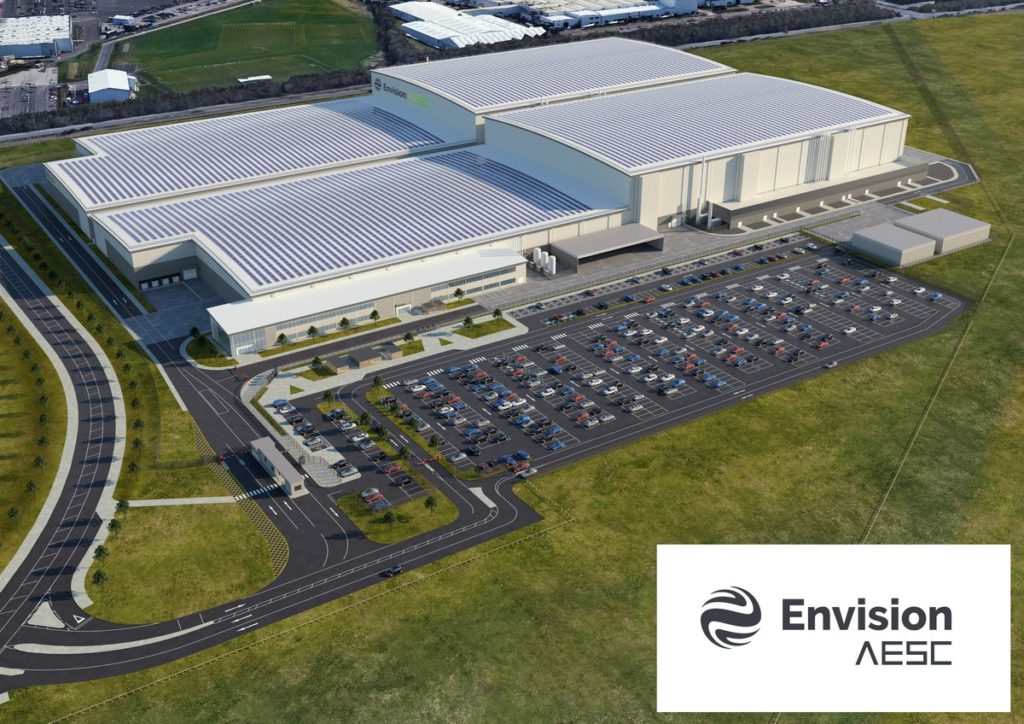Nissan project will see electric-vehicle batteries powering energy grids
23 March 2022

Nissan has announced a partnership with energy provider Enel to launch a project aimed at recycling electric-vehicle (EV) batteries to offer electricity-grid stability.
As the industry continues to embrace electrification, focus is turning to the usability of EV batteries at the end of their lifecycle. Older batteries can, however, still be useful. Nissan and Enel’s project will see cells removed from Nissan vehicles and installed at a conventional power plant in Melilla, Spain.
The project is based on circular-economy principles, extending the life of EV batteries. The Nissan-Enel initiative will see the carmaker provide batteries from its EV line-up while Loccioni, a system integrator, will integrate the batteries as part of the circular process.
Supporting the electricity grid
The electric-vehicle battery-recycling project leverages advanced technology based on a simple idea: once the useful life of an EV battery has come to an end, it is recycled and assembled in a large stationary storage system.
This system is then integrated with Enel subsidiary Endesa’s Melilla facility to avoid the interruption of energy supply during moments of excessive load. The aim is to improve the reliability of the electricity grid and secure continuity of network service to the local population. The backup generator is composed of 48 used Nissan Leaf batteries and 30 new ones.
Melilla has a population of almost 90,000 inhabitants served by a local electricity grid, which is powered by Endesa’s plant and isolated from the national distribution network.
‘The development of storage technology is key if we want to foster greater renewable penetration in our energy systems, so we can truly shape the power generation of the future,’ stated Salvatore Bernabei, CEO of Enel Green Power.
‘Furthermore, in the Enel Group, we are strongly committed to using technology that complies with the principles of sustainability and circularity. Specifically, this project demonstrates that, in line with the Open Innovation principles, we can find solutions for the management of the end-of-life of essential equipment such as batteries, a topic which is at the core of the sustainable energy issue.’
Used Nissan EV batteries provide a source of energy when they are interconnected and stored at Endesa’s Melilla facility with a power of 4MW and the ability to produce up to 1.7MWh of energy. Should the power plant be disconnected from the system, the storage facility can inject energy into Melilla’s electricity grid for 15 minutes, which is enough time to reset the system and restart the power supply.
Electric-vehicle battery versatility
Using EV batteries as storage devices for power stations is not a new concept, with BMW deploying spent batteries at its Leipzig plant since 2017. It is another way of ensuring that older EV batteries do not end up causing pollution but instead become useful, either through recycling or reuse. Battery farms also offer a way to ensure that electricity grids are not overloaded as demand on them rises due to EV charging.
Ensuring vehicle battery sustainability continues to be a priority for Nissan. The Second Life project is another example of how it can support a circular economy in line with Ambition 2030, the company’s long-term vision for mobility.



